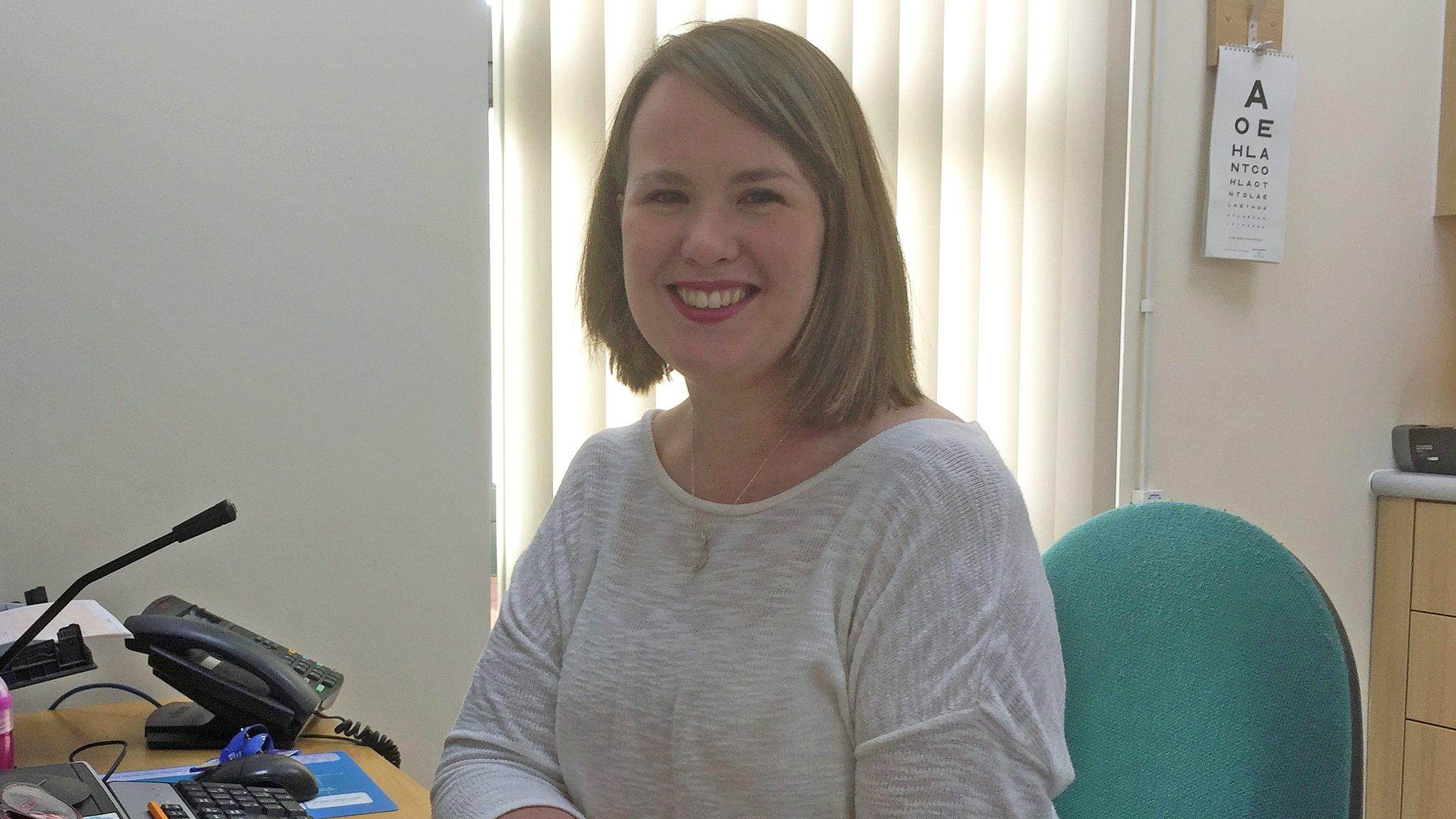Dumfries and Galloway welcomes students in rural doctor drive
- Published
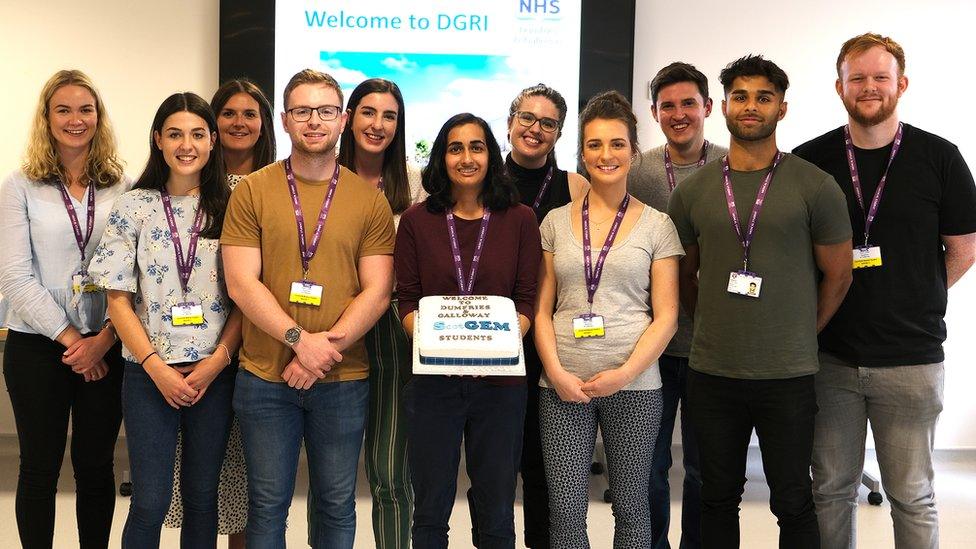
The students have arrived in south west Scotland to continue their training
The first students taking part in a new medical training programme to help tackle a shortage of rural doctors have arrived in south west Scotland.
They will work and study in the region as part of the second year of their course.
ScotGEM is a graduate-entry medical scheme involving four NHS boards including Dumfries and Galloway.
It aims to drive up doctor numbers - particularly GPs - in parts of Scotland where recruitment is a major challenge.
Among their number are Lesley Alexander, 27, of Greenock, and Andrew MacFarlane, 24, from Paisley.
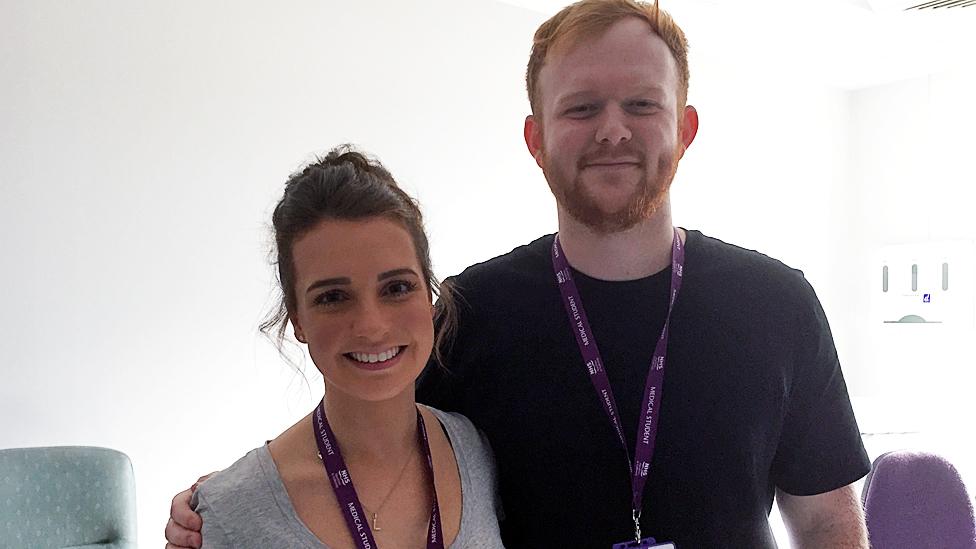
Lesley Alexander and Andrew MacFarlane are both studying in Dumfries and Galloway
Ms Alexander said she liked the graduate entry aspect of the course and had also been happy to leave more urban areas behind.
"I really liked the remote and rural aspect of it," she told the BBC Scotland news website.
"When I worked as a dietician I worked for NHS Borders for about a year and a half and I really loved it down there.
"Everyone is really friendly and I have only been here a couple of days but I get the same kind of feel from the people around here."
Mr MacFarlane described the opportunity as "like a dream come true".
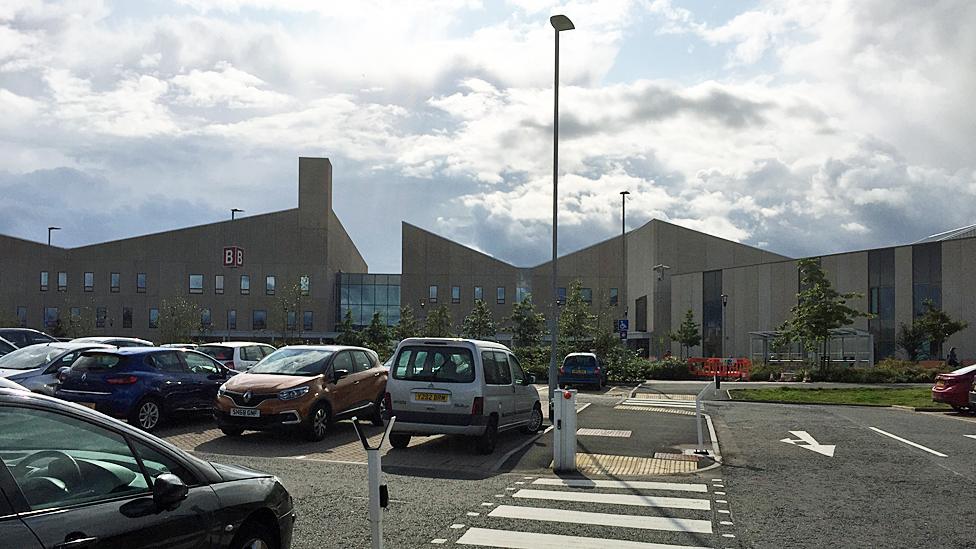
The course aims to take students away from hospitals and out into their community
"I'm from Paisley but mainly based in Glasgow during Uni and you get that kind of feeling - all you really see are cities but you know that Scotland's an amazing place to go and see," he explained.
"I thought the course mixed in with rural aspects would be great to see the best of Scotland and then hopefully try and find somewhere afterwards.
"You get to see lots of different places and see which one works best."
There is a financial incentive to their study too.
"You get a £4,000-a-year bursary which is yours to spend as you want," explained Mr MacFarlane.
"But for every year you take the bursary - which is completely optional - there is a return of service where you will work in NHS Scotland.
"If there is four years of the course and you take the four years of the bursary that is four years where you will be working in NHS Scotland after you graduate which I think is a fair way to do it."
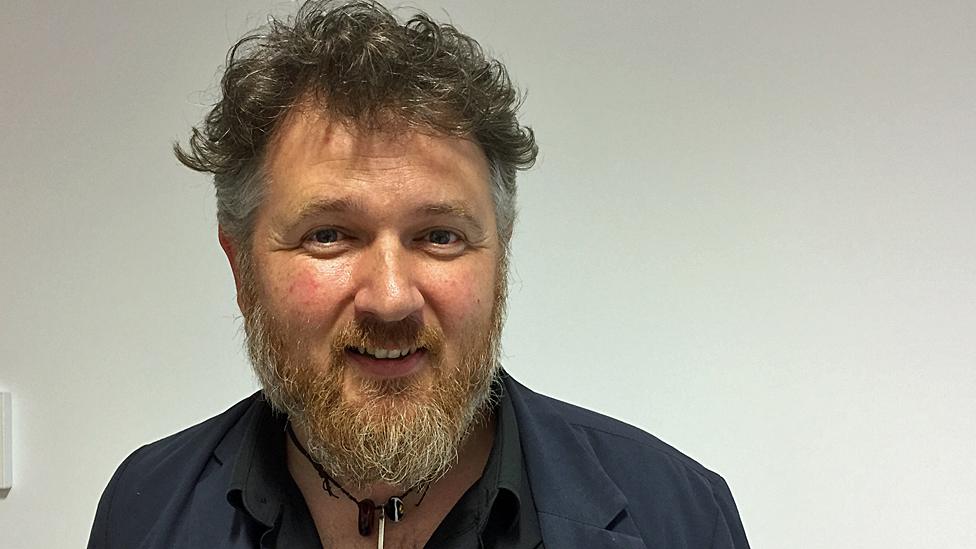
Tutor Dr Richard Voysey said the idea of ScotGEM was simple but "quite brilliant"
Ms Alexander was also pleased to find out about the bursary.
"I think it was after we were accepted we were told about it so it was just kind of an added bonus," she said.
"We all wanted to come and do the course and we were interested in remote and rural medicine anyway."
Although you are not "tied down" to general practice, it as in area both of them will consider at the end of their studies.
'Best students'
Dr Richard Voysey, clinical tutor for students in Dumfries and Galloway, said the course was a potential solution to a long-standing issue.
"One of the problems facing rural areas at the moment is getting medical staff in, it's been a problem with recruitment and obviously the way in which health care is being delivered is going to have to change in the future," he said.
"The idea with ScotGEM is that actually it's a very, very simple idea but it's obviously quite brilliant because of that.
"The idea is purely and simply to get the best medical students that we can find - so we're taking postgraduates, people who have already got degrees in things like pharmacology - and the idea is to then train them not just in hospitals but also in rural practice and also in the community."
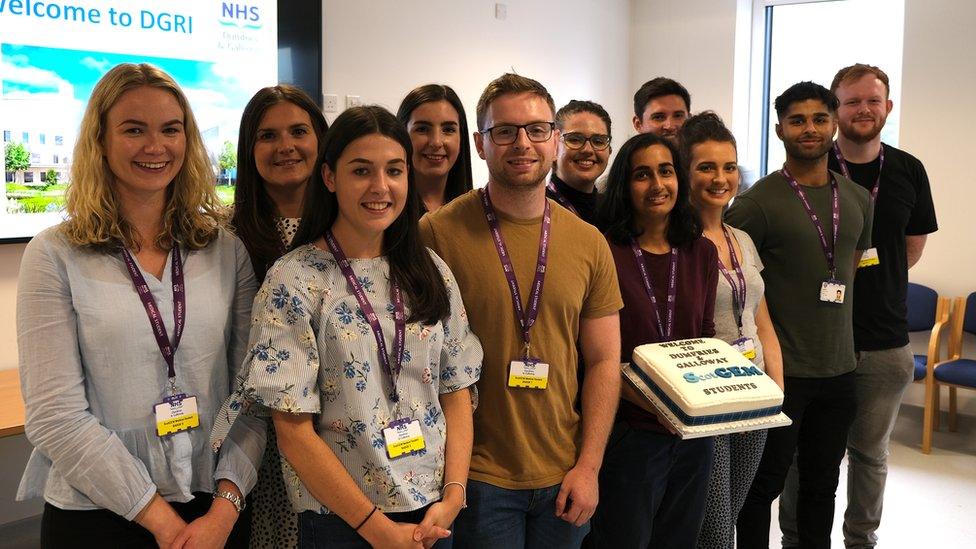
By getting students to train in a more rural community it is hoped they might be keen to return
He said that the students had shown a commitment to wanting to learn in the community and, by training them there, they might be more keen to come back.
"It's not that they have to work in general practice. We're not saying that," he stressed.
"It's not saying that they have to work in rural areas but, obviously, if you think about the way in which medicine has always been taught in the past historically we've always centred it around hospitals.
"If you look at where the bulk of the clinical interactions that take place between the public and the profession it's actually within primary care.
"We've got a far greater pool of patients from which we wish to draw from and to give that experience and really embed doctors in the community."
'Good time'
He said that might help in the struggle to recruit and retain staff in the region.
And the students seem to have been impressed with what the area has to offer so far.
"Everyone seems quite chilled and really friendly and I think we'll have a good time here," said Ms Alexander.
"It is nice to be somewhere that everyone seems really excited to meet you and have you learn here which is what you want if you are a learner," added Mr MacFarlane.
- Published18 February 2019
